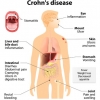Recent studies have shown a direct link between low levels of human growth hormone in the blood and fibromyalgia symptoms. In fact, many fibromyalgia sufferers are turning to human growth hormone supplements and a significant number are finding a reduction in symptoms associated with fibromyalgia. So, is treating fibromyalgia with human growth hormone a treatment that actually works?
What is Human Growth Hormone?
Human growth hormone or HGH is naturally produced in the pituitary gland. It is involved in the development and growth of cells, and in repairing damaged cells. Human growth hormone affects bone density, metabolism, aging, mental alertness, energy, the development of lean muscle mass, and so many other aspects of the body.
Remember how you felt when you were 20? Have you ever wondered why you don’t feel like that when you are 40? 50? 60? Well, as we age the amount of human growth hormone the pituitary gland produces is significantly reduced, and with that comes all the signs of aging that most of us are familiar with.
Symptoms of Fibromyalgia and HGH Deficiency
Interestingly, the symptoms associated with fibromyalgia, are very similar to the symptoms associated with HGH deficiency:
- Fatigue
- Pain
- Sensitivity to cold
- Muscle weakness
- Reduced energy
- Anxiety and depression
- Mental fog
- Reduced stamina
- Sleep disturbances
Fibromyalgia is more common in women than men. It generally begins some time after the age of 20, which is also when the body begins to produce reduced levels of human growth hormone.
Studies Show Fibromyalgia Patients Have Lower than Average Levels of HGH
The human growth hormone is released from the pituitary gland and it travels to the liver, where it triggers the release of IGF-1, a hormone that is actually more responsible for the repair of cells than HGH is.
Recent studies have shown that fibromyalgia patients actually lower than average levels of HGH found in the healthy population, and as a result, they have lower levels of IGF-1. The inability to produce new cells properly, and repair damaged cells has been linked to chronic pain and other fibromyalgia symptoms. Those treated with human growth hormone have seen an improvement in symptoms within six months. In fact, many experts believe that there is a direct link between lower than average HGH levels and other chronic conditions and even obesity.
1999, Leal-Cerro et al showed that fibromyalgia patients produced less human growth hormone than normal subjects (Journal of Clinical Endocrinology and Metabolism, “The Growth Hormone (GH)-Releasing Hormone – GH – Insulin-like Growth Factor-1 Axis in Patients with fibromyalgia Syndrome”), and other work published in the same journal (Landis et al, 2001: “Decreased Nocturnal Levels of Prolactin and Growth Hormone in Women with Fibromyalgia”) reports that the release of HGH from the pituitary is decreased in women with fibromyalgia during sleep. This last finding is significant because the natural release of HGH is highest during sleep at all ages.
A publication by the American Journal of Managed Care (Cook and Owens, Oct 2004: “Developing a Rational Approach for the Use of Growth Hormone in Nonpediatric Patients”) stressed the importance of limiting HGH therapy to those conditions for which there is solid medical evidence backed up by clinical trials, and the necessity of using reliable and accurate medical tests to diagnose growth hormone deficiency. Though future medical research may clarify the relationship between HGH and fibromyalgia, for now, the pieces of the puzzle just aren’t there.
Treatment of Fibromyalgia with Human Growth Hormone
Even with the research and the documented HGH and fibromyalgia correlations, much of the medical community remains adamant that there is not enough evidence to support the use of HGH treatments in those suffering from fibromyalgia. While the use of human growth hormone has been proposed for at least 25 different medical conditions, currently it has only received approval for five conditions: AIDS wasting, Prader-Willi syndrome, Turner syndrome, and chronic renal failure.
Fibromyalgia sufferers and others with chronic conditions will likely be disappointed if they are waiting for help from their doctors through HGH treatments. However, you have options. By taking HGH supplements, you can reduce your fibromyalgia symptoms, and begin to feel better. If you have a severe depletion of HGH, you should see your doctor, and have an open discussion about HGH injections for treating your fibromyalgia.
Non Prescription HGH Supplements

















HGH for FM has shown to help in some patients but still what is lacking is a double blind clinical study to lay any doubt on HGH effectiveness to rest. In the article it is mentioned that FM sufferers tend to have a lower than average HGH levels so maybe it is why taking HGH helps. As far as obtaining HGH from a doctor for FM it would be difficult to do as most of them have not heard of these HGH studies. Also I would not recommend self medicating as HGH itself can cause some serious side effects if improperly used.
Even the supplements or you talking about the injection that are dangerous